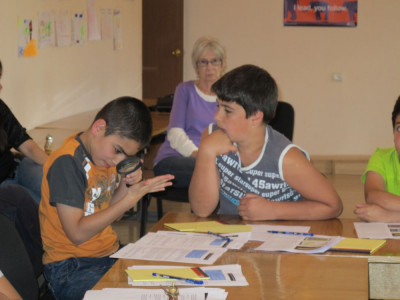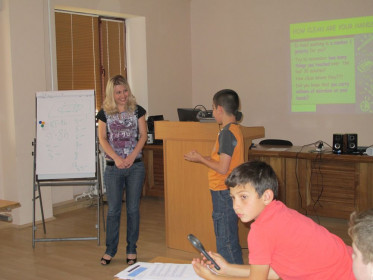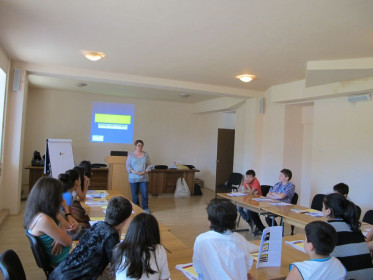
30 Jul 2013
SPREADING FOOD SAFETY KNOWLEDGE THROUGH SCHOOL AGE CHILDREN
Involving youth in USDA Food Safety initiatives is a key element to successfully reaching adolescents with public health messages.
Based on desk research done by Louisiana State University Ag Center, the Ukrainian experts along with CARD Food Safety specialists developed the Consumer Awareness Campaign (CAC) document that explains principles and approaches of the campaign and outlines details of particular activities. The campaign is developed in such a way that every component is built to the most possible extent on results of other components, and key target groups of consumers are covered. The awareness campaign pursues two objectives: building of the efficient mechanisms for indirect enforcement through a campaign to increase consumer awareness, and make compliance by food processors consumer-driven and increasing consumers’ awareness regarding their own responsibilities in relation to food safety and consumption-related health.
Both objectives can be achieved through wide communication to consumers (buyers) via mass media and through consumer protection groups of the meaning of food safety, consequences of consumption of unsafe food, possible abuses by processors and sellers, and ways of identifying/avoiding these abuses.
One of the Consumer Awareness Campaign activities is to offer food safety trainings for school children. In July 2013, the training was offered to children attending “English Town” summer camp in Tsakhkadzor resort, Kotayk marz. The audience comprised from 10 through 14 years old school children as well as their teachers who were Peace Corp volunteers. Total of 16 kids and 5 adults participated in the training. The following topics had been selected for the training: Basic Microbiology: “Invisible World of Enemies”; Hand Washing: “Just Look at Those Hands”; Safe Farm: “Safety in the Farm”; “Bacteria? Not in My Kitchen!” and Bag Lunch and Picnic Safety.
The “English Town” summer camp organized by London Eye ITC organization was intended to provide an opportunity for kids to improve their English skills. Thus, all the activities including the food safety awareness training were offered in English. For active participation in exercises, all trainees received awards.
This activity not only helps CARD Food Safety Department to cover a wide number of children, but also ensures continuous chain of communicating food safety information. In addition, it turned to be a very effective activity that reaches not only children but their parents as well, particularly through preparation of home assignments.











